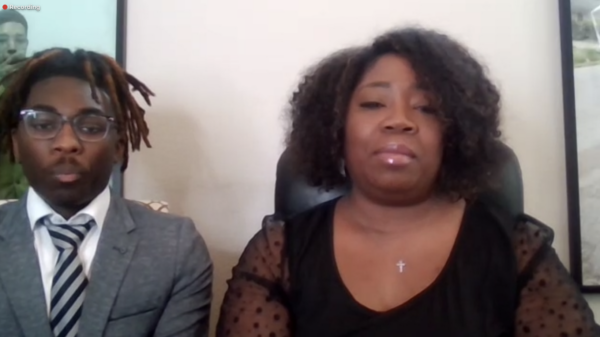After facing backlash for its policy that bans students with locs from walking across the stage during the once-in-a-lifetime graduation ceremony, a Florida-based school has switched gears, but the parent who fought against the rule said it still excludes her son and other Black students from participating in the tradition.
Latrenda Rush, who says she is a former public schoolteacher, was preparing for her son’s graduation from Abeka Academy, a Christian school based in Pensacola, Florida.
She filled out the required documents and submitted them along with a photo of her son, Jacob Rush III, an honors student. She had been homeschooling Jacob, and he wanted to attend a school his senior year where he could have a traditional graduation ceremony. Rush was surprised when Jacob’s petition to walk was rejected.

School officials informed her that Jacob’s application was placed on hold until they could verify that his hair was cut. Latrenda Rush shared screenshots with outlet Black No Chaser of what she said was her communication about Jacob’s application
“While I was reviewing photo that was submitted with the petition, I noticed that Jacob’s hair does not meet the requirements for marching at graduation,” said the school employee, who identified herself as Karen Northrop.
“As a reminder for the graduates participating in the ceremony, we ask the gentlemen to have hair tapered and may not come over the ears, eyebrows, or collar (no braids, dreadlocks, buns, or ponytails). Would you mind emailing me back and confirming that Jacob will abide by the hair guidelines during the graduation ceremony? Once I have your confirmation that our dress requirements will be followed, then I can move Jacob’s petition on to the approval process.”
Rush launched a petition against the school’s policy, advocating for her son to wear his cap and gown with all of his hair.
“I just recently lost my husband, so I’m having to really dig deep and be that voice for my children as they come along through school and teach them when they see something that’s not right, not to turn a blind eye to it,” Rush said during a March 18 video news conference.
As of March 19, about 80,000 people have signed the petition. Facing the backlash, the school apologized and said it will be removing the word dreadlocks from its policy.
Many questioned why Jacob’s hair was ever an issue, “If Jacob earned the grades to graduate, he’s earned the right to walk. What’s hair got to do with it?”
“This is not the 50s!,” said another who signed the petition. “This young man needs to graduate with his hair intact and his honors that he has acquired over his years! There is NOTHING wrong with his hair.”
With the policy still prohibiting Jacob’s hair from touching his ears, eyebrows and or collar, he still won’t be able to walk during the ceremony, Rush’s attorney Sue-Ann Robinson said. It also bans another traditional African-American hairstyle of braids. Robinson is calling for the school to remove all of the restrictions on African-American hair textures.
“We are operating in a society that essentially with policies like this devalues and stigmatizes Black hair,” Robinson said. “Hair discrimination is rooted in systemic racism, and we’re not asking for anything that’s different or special.”
Jacob said he started locking his hair about four or five years ago because he wanted something that was his.
“It’s a part of me,” he said.
After high school Jacob said he wants to learn to be a dental hygienist before obtaining an a degree in anesthesiology. Right now he feels isolated by the policy.
“This makes me very overwhelmed and sad because I took a lot of time to do the work and to be a very good student,” Jacob said.
The U.S. House passed a bill dubbed the Crown Act on March 18, which would prohibit hair-related discrimination. The measure must be approved by the Senate and signed by the president to become law.
“We’re at a time in history where the vice president is a Black woman, and she has the tiebreaker vote in the Senate,” Robinson said. “We’re hoping that this will become federal legislation to give protections nationally against hair discrimination.”


